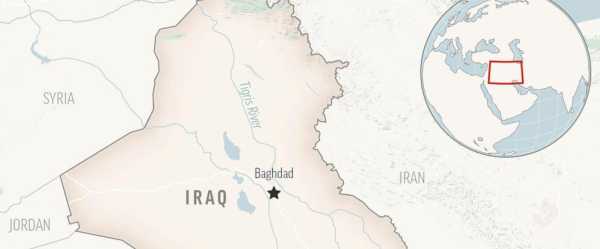
BAGHDAD — Iraq's central government and officials from the semi-autonomous Kurdish region reached a deal Tuesday to resume oil exports from northern Iraq via a pipeline to Turkey.
Iraqi Prime Minister Mohammed Shia al-Sudani and Masrour Barzani, prime minister of the semi-autonomous Kurdish region, announced the deal at a press conference in Baghdad.
“Halting the export of the region’s oil harms Iraq’s revenues,” Sudani said, adding that the governments would work toward passing a federal law detailing the sharing of funds from oil and gas exports.
Barzani said in a statement that while the deal is temporary, it is a “crucial step towards ending the long-standing dispute” between Irbil and Baghdad and “creates a positive and safe atmosphere to finally approve the national oil and gas law.”
Kurdish officials said the deal would allow exports to resume as early as Tuesday.
Iraq stopped sending nearly half a million barrels of oil through the pipeline last month after an arbitration process by the International Chamber of Commerce sided with Iraq in a long-standing dispute over the independent export of oil by the Kurdish regional government.
Baghdad and Irbil have been at loggerheads over oil revenues for years.
Iraq, OPEC’s second largest oil producer, filed for arbitration against Turkey in 2014 after the Kurdish region sidelined Iraq’s state-owned oil marketing company, SOMO, and began exporting crude oil through the neighboring country. Iraq claimed that all oil exports have to go through SOMO under a 1973 agreement with Turkey.
The deal struck Tuesday will allow SOMO to market the crude oil in coordination with Kurdish authorities, according to a Kurdish official privy to the arrangement. He spoke on condition of anonymity because he was not authorized to speak publicly about the matter.
Oil revenues will be under full control of the Kurdish region but will be deposited into an account that the federal government can audit, the official said.
Iraq’s economy is one of the most oil dependent in the world, according to the World Bank. While most of the country’s oil reserves are located in the south, the Kurdish region is heavily reliant on exports of the resource from northern fields.
Sourse: abcnews.go.com






